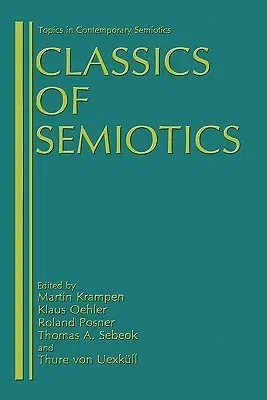This book is designed to usher the reader into the realm of semiotic
studies. It analyzes the most important approaches to semiotics as they
have developed over the last hundred years out of philosophy,
linguistics, psychology, and biology. As a science of sign processes,
semiotics investigates all types of com- munication and information
exchange among human beings, animals, plants, internal systems of
organisms, and machines. Thus it encompasses most of the subject areas
of the arts and the social sciences, as well as those of biology and
medicine. Semiotic inquiry into the conditions, functions, and
structures of sign processes is older than anyone scientific discipline.
As a result, it is able to make the underlying unity of these
disciplines apparent once again without impairing their function as
specializations. Semiotics is, above all, research into the theoretical
foundations of sign- oriented disciplines: that is, it is General
Semiotics. Under the name of Zei- chenlehre, it has been pursued in the
German-speaking countries since the age of the Enlightenment. During the
nineteenth century, the systematic inquiry into the functioning of signs
was superseded by historical investigations into the origins of signs.
This opposition was overcome in the first half of the twentieth century
by American Semiotic as well as by various directions of European
structuralism working in the tradition of Semiology. Present-day General
Semiot- ics builds on all these developments.

